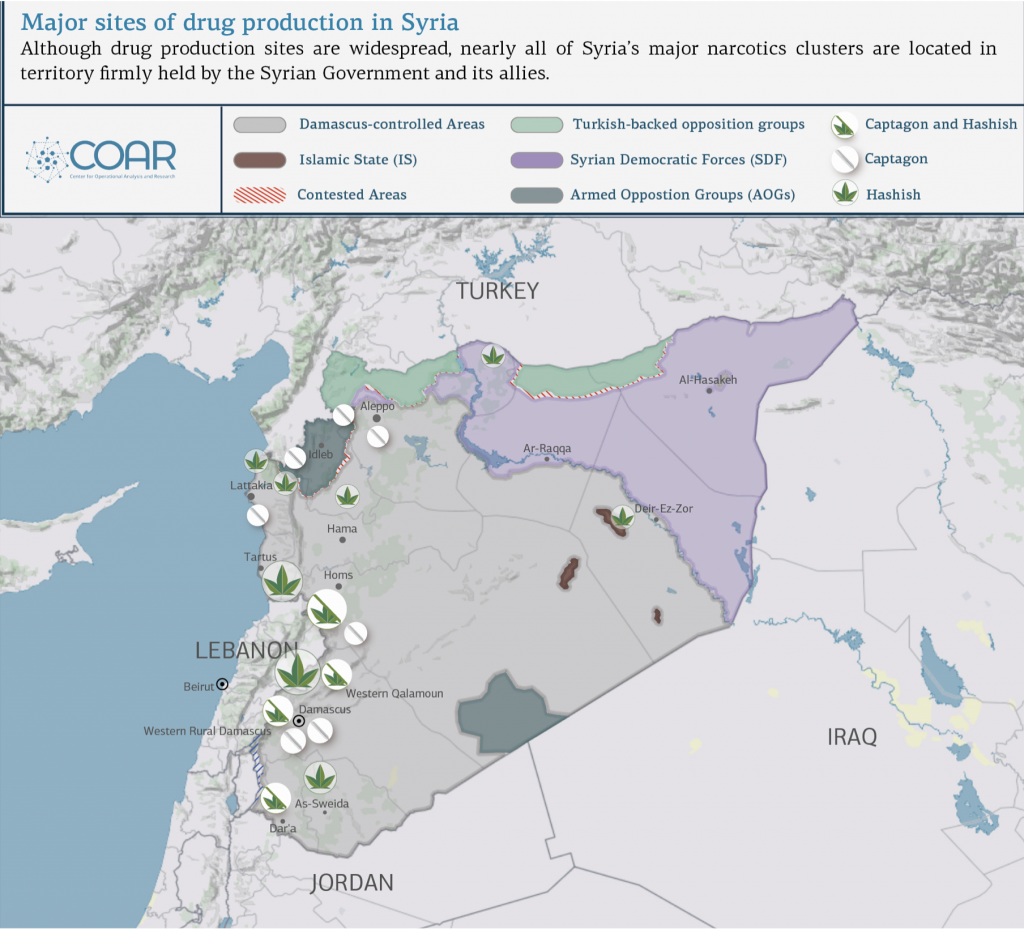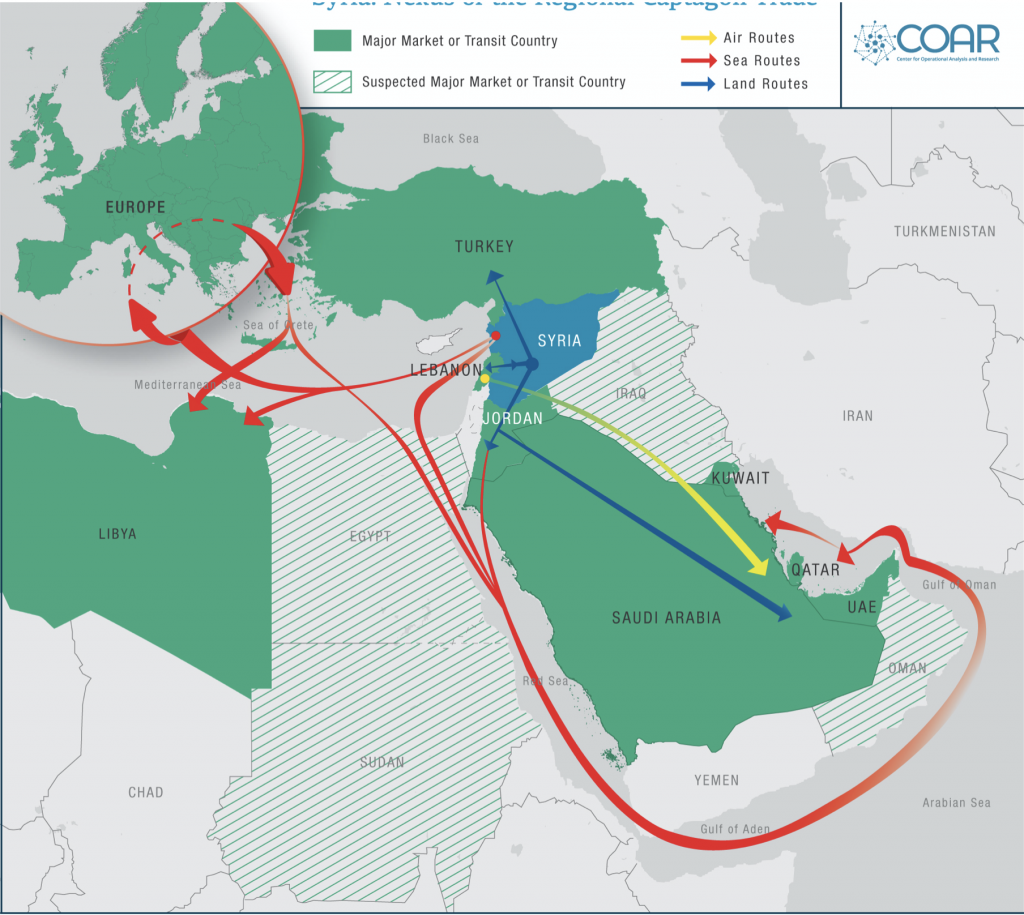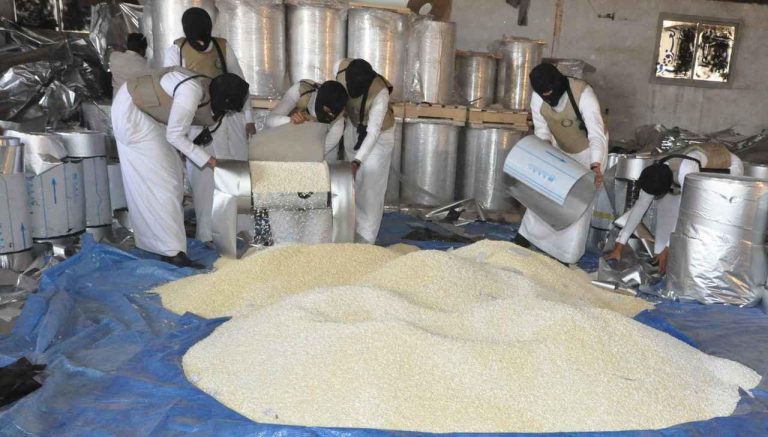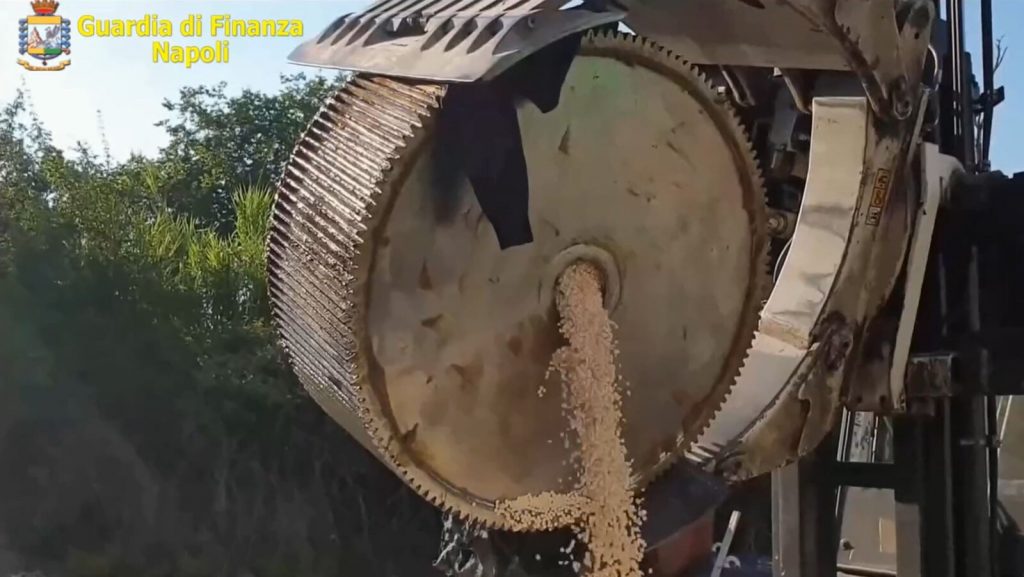Tehran and Damascus use the drug trafficking both as a source to finance their activities and as hybrid war weapon. In order to weaken the West the Soviet Union has already used this drug trade tactic by supplying Russian intelligence with heroin from Afghanistan. Hezbollah is involved in drug trafficking thereby reducing its financial dependence on Iran. Since the 1990s, Imad Mughniyeh has sent the organization activists to join the drug cartels in South and Central America. In recent years, Hezbollah agents in Latin America have created cocaine distribution networks: to the United States through Mexico and to Europe through Africa.
Hezbollah’s annual budget reaches about $1 billion. Lion’s share of the money comes from Iran. According to estimates of the Drug Enforcement Administration under the US Department of Justice (DEA) the organization’s drug deals bring approximately $300-$400 million a year.
On June 19, the Lebanese Shiite group Hezbola planned to deliver millions of Captagon pills to Saudi Arabia. The pills were found inside a container that was supposed to sail from the port of Beirut to Jeddah. On June 26, SaudiArabia’s General Directorate for Narcotics Control has thwarted an attempt to smuggle 14 million Captagon amphetamine tablets hidden inside a shipment of iron plates coming from Lebanon.
It confirms the version that a pro-Iranian Hezbollah produces this drug by using manufacturing facilities in Syria and Lebanon.

FBI records show that, as early as the mid-1990s, Hezbollah’s top spiritual advisers were quietly condoning drug dealing, telling its members that drug trafficking was “morally acceptable if the drugs are sold to Western infidels as part of a war against the enemies of Islam’, according to the 1994 declassified report.
Besides, Egyptian authorities have seized vessels originating in Syria and found massive amount of Captagon. The Assad regime must be now among the world’s largest producers and distributors of illegal drugs. The Hezbollah is being suspected as the culprits, Shaam News reports.
According to the Egyptian Ministry of Interior statement issued at the time, the shipment was destined for Sudan after Egypt, and the officially authorized content of the detained container was wooden panels. The financial value of the shipment was estimated at 480 million Egyptian pounds.
We estimate that pro-Iranian organizations are actively pushing Captagon in the markets of the Sunni countries of the Middle East. Thus, Iranian proxies seem to use Captagon to harm the population of their opponents in the region.
Hezbollah leader Nasrallah has issued religious ordinances saying that selling drugs to hostile communities is a moral duty consistent with the idea of resistance.
Sheikh Mohamad Yazbek, Hezbollah’s spiritual leader in the Beka’a Valley region and a member of the group’s Supreme Shura Council, published a fatwa allowing the production and sale of counterfeit Captagon tablets on condition that they not be used by members of the Shi’ite community.
Such accusations are eagerly seized upon by Saudi Arabia, which revels in charging its arch-rival intelligence forces and proxies, such as Lebanon’s Hezbollah, with purposefully poisoning and destroying Saudi youth by facilitating drug smuggling to the kingdom.
The source of funding for the majority of the Captagon trade originates in the Gulf States of Saudi Arabia and the UAE. These are the same nations that are supporting those combating the Assad regime and its Hezbollah supporters.
However, the number of Captagon tablets distributed to Saudi Arabia is above and beyond the quantity needed for local consumption. It is possible that Saudi Arabia is only a way station from which the pills are then distributed to other countries. Terrorist and criminal networks may be assisted by the mass movement of believers who travel to Saudi Arabia each year to fulfill the religious duty of hajj, the pilgrimage to Mecca.
Syria is a narco-state with two primary drugs of concern: hashish and the amphetamine-type stimulant Captagon. Syria is the Captagon global production epicentre, which is now more industrialized, adaptive, and technically sophisticated than ever.
In 2020, Captagon exports from Syria reached a market value of at least $3.46 billion. Though conjectural, a market ceiling significantly higher than this is distinctly possible.
Although Captagon trafficking was once among the funding streams utilized by anti-state armed groups, consolidation of territorial control has enabled the Assad regime and its key regional allies to cement their role as the prime beneficiaries of the Syrian narcotics trade.
The drug trade will perpetuate conflict in Syria, erode the rule of law, and impede the restoration of holistic economic functionality.
In addition to social costs borne by Syrians themselves, the Syrian drug trade will also destabilize neighboring and regional states which will be forced to bear additional societal and law enforcement burdens as a result.

Various military entities of diverse backgrounds and affiliations are involved in supply chains, transit, and protection rackets. They include divisions of national military entities (e.g., the 4th Division, Air Intelligence, Republican Guard, and Military Intelligence Branch 215), local militias and private security companies (e.g., National Defense Forces, Desert Hawks, Baath Brigades, Saraya Al-Areen), and foreign armed groups of various affiliation (e.g., Islamic Revolutionary Guard Corps, Hezbollah, and Wagner Group).

Post Author
Author
-

Robert Lansing Institute Director General, former DRM
View all posts
imagery analyst, Paris-based analyst in intelligence




